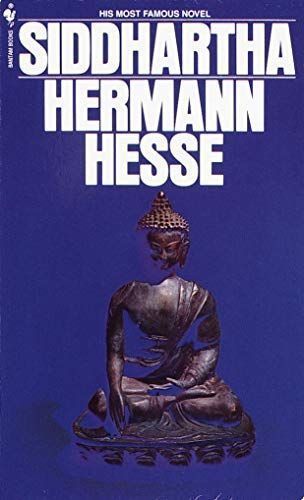
Siddhartha
A book—rare in our arid age—that takes root in the heart and grows there for a lifetime. Here the spirituality of the East and the West have met in a novel that enfigures deep human wisdom with a rich and colorful imagination. Written in a prose of almost biblical simplicity and beauty, it is the story of a soul's long quest in search of he ultimate answer to the enigma of man's role on this earth. As a youth, the young Indian Siddhartha meets the Buddha but cannot be content with a disciple's role: he must work out his own destiny and solve his own doubt—a tortuous road that carries him through the sensuality of a love affair with the beautiful courtesan Kamala, the temptation of success and riches, the heartache of struggle with his own son, to final renunciation and self-knowledge. The name "Siddhartha" is one often given to the Buddha himself—perhaps a clue to Hesse's aims in contrasting the traditional legendary figure with his own conception, as a European (Hesse was Swiss), of a spiritual explorer.
Reviews
SONYA@madethroughlove
mimi nguyen@nakedguacamole
NEO@itzneo
Karel Marccenaro@marccenarokarel
Maria@arquimidea
Kirsten Kim@kirstenkim
anjali@anjalislibrary
Lindy@lindyb
Ubeyd Gencer@ubeyd
farro@farvvana
aya@lovetheme
egle trovato@egle
Laura Mauler@blueskygreenstrees
Arya Bhushan@oreo
rakshu@rakshureads
Traci Wilbanks@traci
Bart Veldhuijsen @bart
Erik Wallace@erikwallace
Jacob Medure@jacobs_blue
heleen de boever@hlndb
Faith Ho @faithho
SA@sajidahakther
Aakankaha Dwivedi@she_reads
Vishwa@vishwa
Highlights
Mariana Foster@marianasreading
Page 11
Mariana Foster@marianasreading
Page 9
Mariana Foster@marianasreading
Page 9
Mariana Foster@marianasreading
Page 9
Mariana Foster@marianasreading
Mariana Foster@marianasreading
Mariana Foster@marianasreading
Mariana Foster@marianasreading
Mariana Foster@marianasreading
Page 4
Mariana Foster@marianasreading
Page 3
Mariana Foster@marianasreading
Page 3
Mariana Foster@marianasreading
Page 3
Mariana Foster@marianasreading
Page 2
Mariana Foster@marianasreading
Page 2
Mariana Foster@marianasreading
Page 2
Mariana Foster@marianasreading
Page 2
Mariana Foster@marianasreading
Page 2
Mariana Foster@marianasreading
Page 2
Mariana Foster@marianasreading
Page 1
Mariana Foster@marianasreading
Page 1
Mariana Foster@marianasreading
Page 1
nanafark@nanafark
nanafark@nanafark
nanafark@nanafark